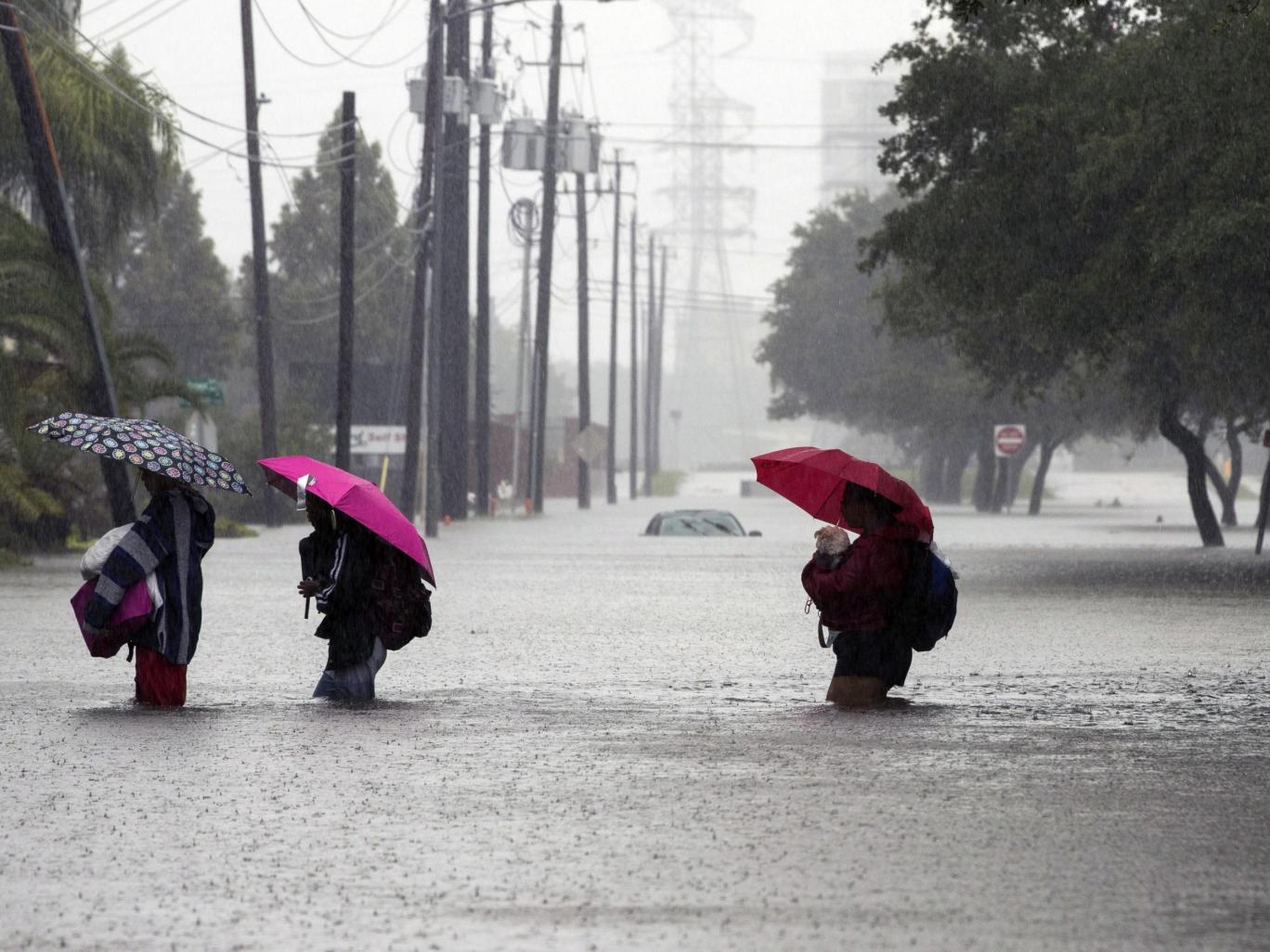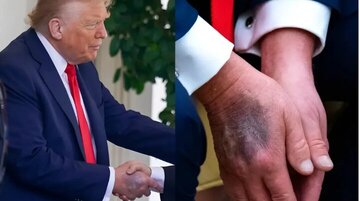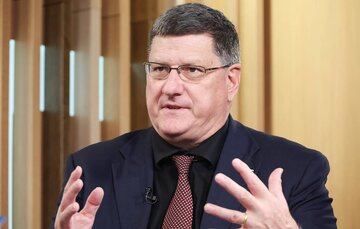The gymnasium at the Champions Islamic Center is covered with mats and blankets, donated clothes and boxes of food lining its walls.
On the eve of the Eid al-Adha festival, one of Islam’s holiest days, it’s become the temporary home for 15 of the thousands of Harvey evacuees, Muslim and non-Muslim. And though it will host hundreds of people during the Friday morning prayer for the festival of sacrifice, the mosque’s leaders have been adamant: No matter how many people attend the prayers, the evacuees aren’t going anywhere.
“They are the No. 1 priority. They will not be disturbed, they will not be displaced, they will not be moved,” said M.J. Khan, the president of the Islamic Society of Greater Houston, which operates the Champions mosque and several others that are providing shelter.
Another mosque in the city of Beaumont—the Islamic Society of Triplex— started to offer food and volunteer medical care to the neighbors, according to Amna Ahmed, a member of the mosque.
The members of the mosque--even though many of them had to evacuate their homes south of Houston--delivered meals to an estimated 500 people at the city’s two emergency shelters on Thursdays night, Ahmed said.
She said the mosque plans to bring another large supply of meals to a basein Port Arthur.
As in other catastrophes, from Superstorm Sandy in October 2012 to Hurricane Katrina in 2005, and the terrorist attacks of Sept. 11, 2001, American Muslims have been counted both as victims and as participants in the recovery. Houston’s Muslim community, an estimated 200,000 people, has opened many of its community centers and sent hundreds of volunteers to serve food and deliver donations. Some have rescued neighbors from high water.
Despite Harvey’s historic flooding hitting the Houston area just days ago, the rituals of fasting, an iftar dinner and prayers continue at the Champions mosque, also known as Masjid al-Salam, and other community centers in Houston. But some families who participate in those rituals will spend the night at a mosque because they can’t return to their homes. Others will head from prayers Friday morning to volunteer at food banks and shelters. Still, others find themselves at one of the city’s mega-shelters, unable to get to a mosque for the holiday.
Islamic leaders and scholars say the work underscores the spirit of the festival, which coincides with the hajj, or pilgrimage to the Islamic holy city of Mecca.
“The ultimate goal of holding and practicing all of these rituals ... is to help others,” said Imam Hassan Qazwini, leader of a Detroit-area mosque and one of the top Shiite Muslim leaders in the United States. His mosque, the Islamic Institute of America, is dedicating this Eid to raising money for storm victims, and state and national Islamic organizations also have been spearheading similar efforts.
“I believe opening your door on the day of Eid for refugees and people in need is a form of worship itself,” he said.
The storm made landfall last Friday as the most powerful hurricane to hit Texas in over five decades. It has since been downgraded to a tropical depression as it heads to the Texas inland and parts of neighboring Louisiana.
Some 779,000 Texans have been told to leave their homes and another 980,000 fled voluntarily amid dangers of new flooding from swollen rivers and reservoirs. So far, at least 44 people were dead or feared dead, according to Texas officials.
Anti-Muslim sentiments and hate crime incidents have been on the rise across the United States since President Donald Trump started his presidential campaign, during which he promised to impose a “complete and total shutdown” on Muslims entering the US, according to the Council on American-Islamic Relations (CAIR).
In a report published in July, CAIR said hate crimes have spiked since 2016, which was the worst year on record for anti-Muslim incidents. It also warned that 2017 could be the worst year for US Muslims if anti-Islam bias and hate crimes continue at this rate.
“The presidential election campaign and the Trump administration have tapped into a seam of bigotry and hate that has resulted in the targeting of American Muslims and other minority groups," said Zainab Arain, a CAIR coordinator.
The report said that common forms of hate crimes against Muslims from April to June this year involved harassment, physical violence or property damage.





/323





